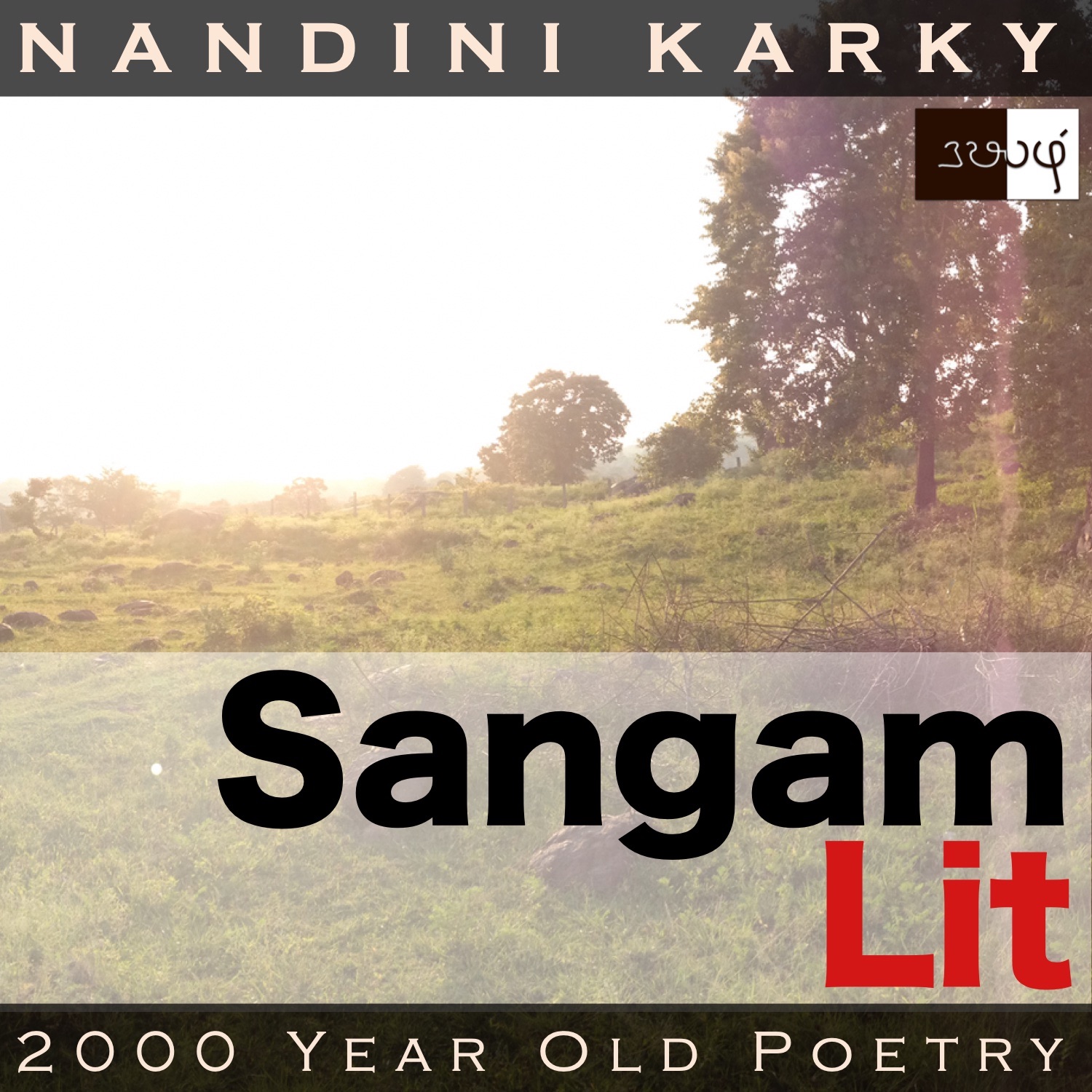Podcast: Play in new window | Download
Subscribe: Apple Podcasts | Spotify | Amazon Music | Android | iHeartRadio | TuneIn | RSS | More

In this episode, we reflect upon philosophical truths portrayed in Sangam Literary work, Natrinai 226, penned by Kaniyan Poongundranaar. Set in the ‘Paalai’ landscape of drylands, the verse speaks in the voice of the lady to the confidante, expressing her grief over the man’s parting away in search of wealth.
மரம் சா மருந்தும் கொள்ளார், மாந்தர்;
உரம் சாச் செய்யார், உயர்தவம்; வளம் கெடப்
பொன்னும் கொள்ளார், மன்னர்-நன்னுதல்!-
நாம் தம் உண்மையின் உளமே; அதனால்
தாம் செய்பொருள் அளவு அறியார்; தாம் கசிந்து,
என்றூழ் நிறுப்ப, நீள் இடை ஒழிய,
சென்றோர்மன்ற நம் காதலர்; என்றும்
இன்ன நிலைமைத்து என்ப;
என்னோரும் அறிப, இவ் உலகத்தானே.
The verse opens with the words ‘மரம் சா மருந்தும் கொள்ளார்’ meaning ‘They don’t kill a tree to extract its medicine’ and in an indirect manner, inform us that the ancients considered the trees to be the fountainhead of healing. There’s perfect order, in the first three lines, as in a well-built structure. Thereafter, the line ‘என்றூழ் நிறுப்ப, நீள் இடை ஒழிய’ meaning ‘scorched by heat, he walks on the long drylands path’ brings forth the hardships that had to be faced to gather wealth. The verse ends on a thoughtful note with the line ‘என்னோரும் அறிப, இவ் உலகத்தானே’ meaning ‘everyone in this world knows this well.’ What is that thing that everyone knows well and does this provide solace or distress to the lady? Let’s explore.
The man and lady were in a love relationship when the man had to part away in search of wealth. Owing to the disease of pining, the lady suffers. The confidante tries to console the lady but to no avail. One day, the lady turns to her confidante and says, “People do not extract that much medicine such that it kills the tree; Those who do penances, do not do it such that their strength is ruined; Kings do not demand gold in taxes to a degree such that their subjects’ prosperity is ruined. Know this, my dear with a fine forehead! I live because of his love. He doesn’t seem to know the consequence of his seeking wealth. Thinking only about attaining wealth, my lover traverses that long drylands path, scorched by heat. They say that such is the nature of men always. Everyone in this world knows this well!” With these words, the lady brings out the senselessness in the man’s seeking wealth whilst leaving her in ruins.
Time to look deeper into this deep verse! To give a modern-day equivalent, as if supporting an argument in court, the lady presents three different cases. First, is the case of the tree and extraction of its medicine. In this case, the lady states that those who extract medicine from the tree, be it from the leaves or its bark, do not do it in such a way that the tree ends up dead. Then she talks about the ascetics, who perform penances, and here too, she says no matter how strenuous their practice is, they will never take it to a level, where all their strength is destroyed. She states the final case that kings too would never demand so much gold in taxes that it ruins their subjects. With these three cases, the lady argues that no one in their right senses would destroy the foundation on which they stand.
Now, she turns her attention to the man and says that she lives because of him and he earns his wealth to lead a happy life with her. And yet, the man doesn’t seem to consider the consequence of his parting away to the harsh drylands to earn this wealth, which would be the end of her very life, as it struggles to bear with the separation. The man seemed to be acting against the basic tenet presented in the three cases before, of destroying the base of his future, for which he strives today. The lady concludes saying that such is the attitude of men and that the world entire knows of this. Can we conclude the lady draws strength from this philosophical observation about the nature of men who seek wealth? We cannot know for sure but perhaps seeing with the wise eyes of the world, she’s able to understand the man’s urge to seek wealth and thereby, finds the resolve to bear the separation.
The verse kept bringing back a single image in my mind’s eye. The image represented by the old Russian proverb ‘Do not cut the branch on which you sit.’ Searching more on this, I learnt that a monument has been built in Yakutsk, Russia to represent this very proverb, which also happens to be a popular tourist attraction. Although the act of cutting the branch one sits on seems like a ridiculous thing to do, we don’t realise that we end up doing something similar to this, in the large scale of things. To give some current-day examples, take the case of a business woman working under incredible levels of stress that her mental health breaks down; a fashion model taking his diet to an atrocious degree so as to be admitted to the hospital, and further zooming out, we, as humans, extracting from other life forms on earth for our own needs, such that those life forms become extinct! A verse that seems to confront us with the question ‘Will the things you do now make sense in the end?’




Share your thoughts...